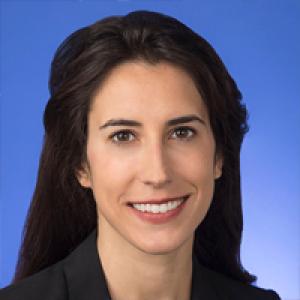
Kendall Turner
Having studied Italian for three years, Kendall Turner decided to study abroad in Milan, Italy, to test out her skills in the real world. Through the experience, she became more fearless, independent, and confident. Upon receiving her J.D. from Stanford University, Kendall clerked with U.S. Supreme Court Associate Justice Stephen Breyer and the Honorable Merrick B. Garland (President Obama’s U.S. Supreme Court nominee). She also co-founded Proyecto Villa Nueva, a nonprofit focused on educating children in Tegucigalpa, Honduras, and she just completed a book on money management for young women. Today, she is an associate at the law firm Jenner & Block. In our interview, Kendall shares how the skills she learned abroad made her clerkships a little less intimidating and tells us about the inspiration behind her nonprofit.
IES Abroad: What motivated you to study in Milan? Had you traveled much previously, or was this your first experience abroad?
Kendall Turner: I had been studying Italian for three years in college and wanted a chance to take my language skills for a spin in the real world. Although most of my classmates who studied Italian went to Rome, I was drawn to Milan because it was less touristy. I had traveled a bit abroad before—I’d been to England, Italy, and Austria when I was younger—but this was my first extended stay abroad by myself.
IES Abroad: What are one or two of your most impactful study abroad memories?
KT: I remember having to do a presentation to my whole group at the end of my time abroad—I was so afraid of public speaking! But the experience helped me learn that sometimes the fear doesn’t go away; you just have to do things while being afraid.
IES Abroad: How did you change most during your time in Milan?
KT: I became more fearless, more independent. I felt (and continue to feel) confident that I could travel happily on my own.
IES Abroad: After receiving your J.D. from Stanford University, you had a clerkship with Associate Justice Stephen Breyer of the U.S. Supreme Court. You also clerked for the Honorable Merrick B. Garland (President Obama’s U.S. Supreme Court nominee). Were there any skills learned or developed abroad that you were able to draw upon in these experiences?
KT: Both Justice Breyer and Judge Garland are wonderful, wonderful bosses. Both can also be a bit intimidating when you’re fresh out of law school. But my time studying abroad in Milan—along with other experiences I’ve had throughout my life—helped me learn that I could face them, even if I was a little afraid of them.
IES Abroad: In addition to your interest in law, you co-founded Proyecto Villa Nueva, a nonprofit in Honduras focused on educating children in marginal urban barrios in Tegucigalpa. Tell us about the organization and the inspiration behind it.
KT: PVN provides scholarships to students in Colonia Villanueva—a barrio in Tegucigalpa, Honduras—that follow them from fourth grade through the end of their education (provided that they maintain their academic performance). We also support teacher committees by providing them with leadership training, professional development workshops, and lessons in financial management. Our work helps keep students in school and enhance their educational experience. I wish I could take credit for the genius behind the organization, but I was inspired by a friend and by circumstance. My best friend from college moved to Honduras after he graduated and was studying retention rates in the schools in this barrio, and he wanted to do something to improve them.
IES Abroad: You recently finished a book about money management for women in their 20s and 30s before starting as an associate at the law firm Jenner & Block. How did this project come about?
KT: I started working at Jenner & Block a few months ago, and I made good headway on the book before I began. I decided to write it because I have so many friends who kept asking me the same questions: What should I do about my student loans? How much should I be saving for retirement? Should I buy a house? I grew up with two financial advisors for parents, so these topics were the stuff of our dinner conversations. (Yup, our dinner conversations were pretty boring.) I know there are many books providing financial advice, but I thought I could write a book in a particularly accessible format that would be helpful to many of my peers.
IES Abroad: What has been one of your most satisfying accomplishments to date? What are you most looking forward to next?
KT: My most satisfying accomplishment (if you can call it that) has been developing some really good friends. I know that’s corny, but it’s true. I’m an only child and have a tough family situation, so my friends help keep me on track. And I’m most looking forward to being a good friend back to them, because I have asked a lot of my friends lately.
IES Abroad: Why do you feel study abroad is important for students today?
KT: My time in college was pretty excellent, and I thought adult life would always be like that. It’s not. (Although my life right now is pretty excellent, too.) I think studying abroad helped me realize that when you’re not in a structured social environment like school, you have to work harder at making yourself happy. Truth be told, I’m still learning that lesson. But studying abroad, getting outside your comfort zone, is a good way to start. It’s also important to realize that there are lots of different ways (and places) to live your life, and lots of different definitions of success.